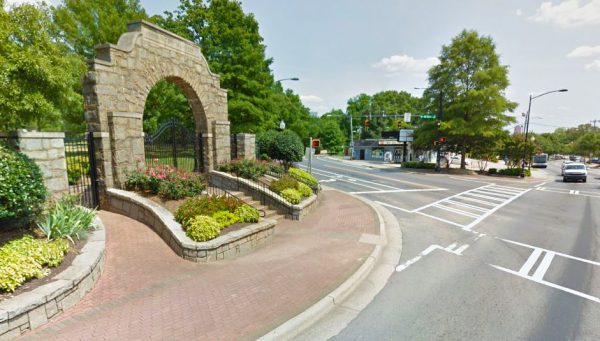Historic West End: What’s next for area near JCSU?

Develop a historical asset map. Improve physical connections to public spaces and neighborhoods. Conduct a business needs assessment. Explore whether to list the neighborhood on the National Register of Historic Places.
Those were among more than two dozen proposals for improving the neighborhoods just west of uptown Charlotte, near Johnson C. Smith University and the intersection known as Five Points.
Click image to download PDF of the plans’s contents
The ideas were presented to dozens of residents Tuesday night who came to hear about the 2016 Tactical Plan. It’s part of the Historic West End Initiative, a project of several organizations, including JCSU, and community leaders funded through a $1.5 million grant from the John S. and James L. Knight Foundation.
Alysia Osborne, a former long-range planning coordinator with the Charlotte-Mecklenburg Planning Department, was hired last fall as director of Historic West End. The initiative is housed at Charlotte Center City Partners, a nonprofit uptown booster group funded with a special property tax in the uptown area.
Some of the neighborhoods in the area such as Biddleville-Smallwood and Wesley Heights are seeing dramatic changes with an influx of new houses and more white residents into what have been, for the past three decades, predominantly black neighborhoods. (For an in-depth look at the neighborhood changes, see Charlotte Observer reporter Pam Kelley’s “White people in Biddleville: The story of a changing neighborhood.”)
And the topic of what Osborne called “the G-word” arose quickly during the question-and-answer session of the meeting.
“We must talk about gentrification,” said Smallwood resident Nykke Ford. “The imprint and fabric of this neighborhood is changing. … Your eyes are closed if you don’t see that.”
Osborne agreed it’s an issue for the area as it draws increased development. “How do you invest in your community without displacement?” she asked. She pointed to one of the items in the tactical plan: “Assess existing policies and programs to provide more affordable housing choices.” The plan looks to the City of Charlotte to take the lead in that initiative. Osborne also said they’d look at a variety of strategies, such as land-banking.
Some background on land banking: This is a tool often used by something called a community land trust, typically a nonprofit group whose mission is to provide affordable housing in perpetuity by owning land and leasing it to residents of houses built on the land. (Read more about community land trusts here.)

Highlighted area is the focus of the Historic West End Initiative. Gold dots show the proposed stops of Phase II of the City Lynx Gold Line streetcar. Map: Courtesy Charlotte Center City Partners
The Historic West End Tactical Plan, developed in consultation with area residents, lays out a variety of initiatives to be undertaken by partners in the community such as JCSU, Center City Partners and the 5 Points Community Collaborative.
The plan is not an official city plan. Those are policy documents adopted by the Charlotte City Council. Indeed, no representative of the city planning department attended the Tuesday night meeting. The West End plan was created with the assistance of consultants, Progressive Urban Management Associates of Denver.
A few of the 27 initiatives listed:
- Explore partnerships with JCSU, Johnson & Wales and Central Piedmont Community College to leverage resources related to innovation and entrepreneurship.
- Identify collaborative solutions for providing incubator and workforce development opportunities.
- Explore permanent locations for displaced community and cultural arts facilities like the Collard Green Museum and Historic West End Market.
- Explore adaptive reuse and long-term redevelopment opportunities of the former A&P grocery store site on West Trade Street.
